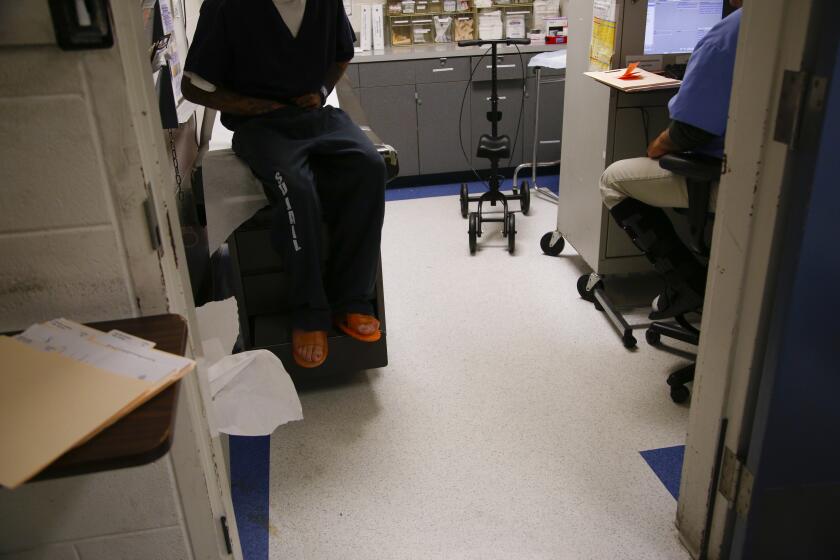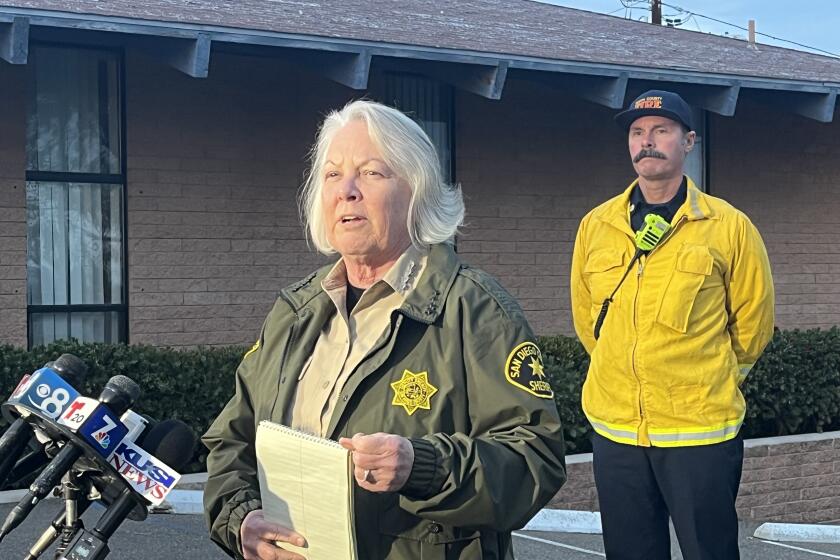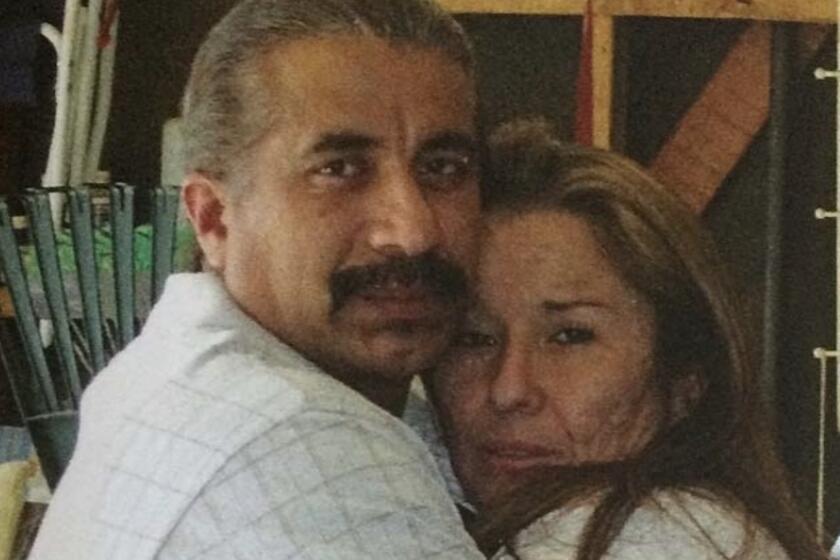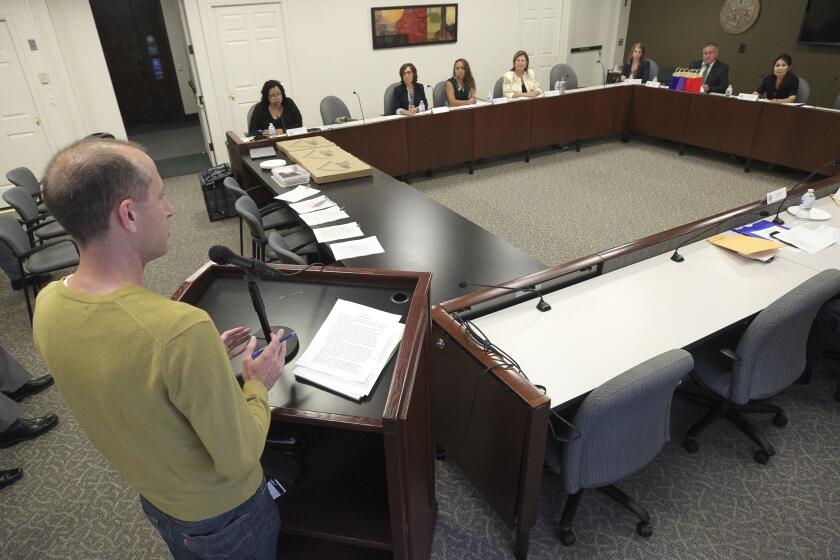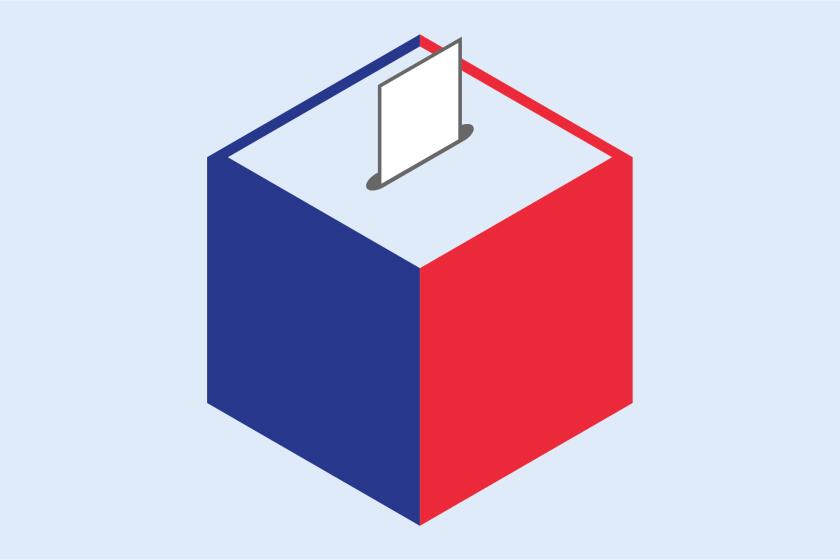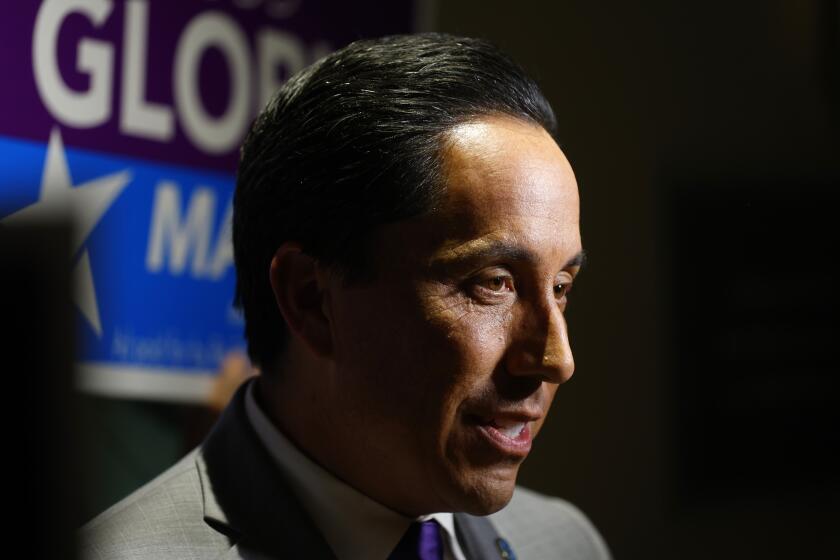Bad check program spurs lawsuit
Plaintiffs say DA shouldn’t be used for collections, Dumanis says merchants need assistance
A class-action lawsuit in Northern California is challenging a program used by prosecutors across the nation — including San Diego — to help businesses collect on bounced checks.
The program is run by BounceBack Inc. of Kansas City, Missouri, which sends debtors letters that threaten prosecution. The letters are sent in cooperation with local district attorneys, who get a share of fees that are collected.
Backers of the program see it as a way to partner with the private sector to fight petty crime, allowing public resources to focus on bigger things.
Critics say the letters are over the top, threatening prosecutions that are unlikely or unwarranted. They worry due process could be at risk, and question whether private companies should be making money off law enforcement.
In San Diego, District Attorney Bonnie Dumanis has offered the program to local businesses who lost money for at least 10 years.
“My office is providing a Check Enforcement Program to assist merchants and individuals in fighting back against bad check writers,” her website says.
Links on the district attorney’s website lead visitors to HotChecks.net, a domain registered to BounceBack Inc. of Kansas City, Missouri, which features a photo of Dumanis, her official office seal and her message urging creditors to sign up for the service.
Writing a bad check is illegal in California if it’s done knowingly or with intent to defraud.
Critics say companies like BounceBack deliberately mislead debtors by overstating the possibility that they will be criminally prosecuted for bouncing a check.
“The district attorney’s job is to enforce criminal laws,” said Paul Arons, a Washington state lawyer who filed the lawsuit against BounceBack earlier this month. “DA’s are not supposed to be in the debt-collection business.”
Arons said most people who bounce checks do so inadvertently and without criminal intent. When they do overdraw their accounts, they are typically charged a returned check fee by their banks, and sometimes the business.
“Now they’re being told they’ll be charged with a crime,” Arons said. “Threatening to put someone in jail if they don’t pay you money is called extortion.”
BounceBack president and founder H. Gale Krieg did not respond to a message left at his Kansas City office or an email. Employees said Krieg was the only person authorized to speak to reporters.
One of the lawyers defending BounceBack in the class-action case said his client is merely operating as an administrative agent for the district attorney and noted that everyone contacted by the company has been determined by prosecutors to have possibly committed a crime.
“The letters that are sent out are fully the responsibility of the prosecutor,” said Gregg R. Smith, an attorney in Spokane, Wash. “They either draft, approve or modify a letter that may or may not be sent. BounceBack provides an administrative service that will assist and alleviate some of the budget problems” for prosecutors’ offices.
According to the company, BounceBack does business with dozens of local governments, including at least eight counties in California. The firm has several competitors across the country.
The American Bar Association examined the business model in detail last year and issued a legal opinion aimed at helping lawyers and prosecutors decide when it is appropriate to contract with outside vendors to operate a check-enforcement program.
The opinion concludes it is unethical for prosecutors to farm out the work absent a review for probable cause that a crime may have been committed or a review of the letter to ensure that it complies with the rules of professional conduct for lawyers.
The San Diego Union-Tribune contacted the San Diego County District Attorney’s Office on Thursday with a number of questions about the program. Dumanis said answers and documentation would be provided next week.
“The involvement of the District Attorney’s Office is in compliance with the ethics opinion from the American Bar Association, as you will see when you receive our documentation,” Dumanis said via email.
Under its agreement with San Diego County, BounceBack collects information about returned checks from businesses and individuals who report the insufficient funds through the county enforcement program.
Many of the cases are referred by collection agencies or companies that accept a high number of personal checks.
BounceBack alerts the District Attorney’s Office to possible cases and prosecutors decide whether the checkwriters will receive a warning letter, Smith said. He said every recipient is given a chance to pay up long before a letter is sent.
“It’s a good deal for prosecutors and their constituents,” Smith said. “Economic crimes cause a huge toll on society.”
The BounceBack notices sent in Mendocino County are included in the class-action lawsuit. On District Attorney’s Office letterhead, they carry messages such as “Warning of Criminal Charges” and “It is still possible to avoid a CRIMINAL CONVICTION.” They contain no reference to the company or its involvement.
The letters go on to state that the recipient must pay the full dollar amount shown and also enroll in an online “check writer’s financial training course” at a fee of $145 or more. The program fee is $50 or more and if the person pays with a credit or debit card, there is a $6 fee for that.
“Payment must be received within ten (10) days from the date of this letter,” the notices state.
The contract that San Diego County officials signed with BounceBack in 2011 calls on the company to provide monthly reports indicating how many checks were reported, how much money was recovered, how much was received in fees by the vendor and how much was paid to the District Attorney’s Office.
The proposal BounceBack submitted in advance of being awarded the contract estimates the program would generate $1.3 million over five years beyond the money it recovers on behalf of businesses and individuals.
Most of those funds pay for BounceBack salaries, benefits and operating costs. BounceBack estimated the county would receive about $75,000 a year from fees paid by more than 1,200 checkwriters.
The class-action case against BounceBack was filed August 3 in federal court in Northern California. The suit seeks an injunction against the company, a legal determination that its practices violate the Fair Debt Collection Practices Act, punitive damages, attorney fees and other damages.
“It is a misrepresentation to state that a check writer risks prosecution when no prosecutor has reviewed evidence,” the lawsuit states.
Smith, the BounceBack attorney, said his client relies on the prosecutors to review case histories before any warning letters are mailed out.
“We have no discretion,” he said. “This is the prosecutors’ program.”
Arons said that prosecutorial review is nothing more than a monthly list of checks with no specific evaluation of what prompted the bank to return the check unpaid. No one reviews the evidence to determine if a crime may have been committed, he said.
“They’re looking at a name, an address and a check,” Arons said. “They don’t do any investigation, any of the things they normally do when they prosecute someone.”
The practice of outsourcing check enforcement programs has gained more attention from federal regulators as the industry has grown in recent years.
In March, the Consumer Financial Protection Bureau announced an enforcement action against BounceBack competitor National Collective Group of San Clemente that prohibited the company from using District Attorney’s Office letterhead
The order also directed the firm to inform consumers that prosecutors had not specifically determined they should be charged with a crime and to stop telling them they were required to enroll in diversion courses.
“National Corrective Group masqueraded as prosecutors and used deceptive tactics to intimidate consumers into paying hundreds of dollars in extra fees to avoid potential criminal prosecution,” said CFPB Director Richard Cordray. “Today we are taking action to put a stop to these illegal debt collection practices.”
Get Essential San Diego, weekday mornings
Get top headlines from the Union-Tribune in your inbox weekday mornings, including top news, local, sports, business, entertainment and opinion.
You may occasionally receive promotional content from the San Diego Union-Tribune.



